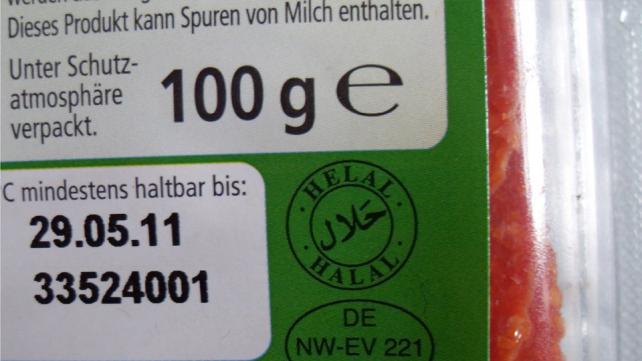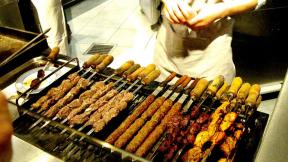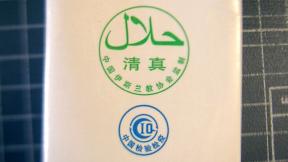
It was the mid-1980s and the war between Iran and Iraq was still underway. “Kamal Sharif“ (his name has been changed to protect his identity) was an employee at a Muslim-owned meat company in the eastern United States.
This company had an agreement with the government of the United States to export meat to Iraq.
“This was part of the effort the U.S. was doing to assist Iraq,” explains Sharif. “Iraq was broke and could not buy food in general from its usual suppliers. The U.S. Agriculture department [USDA] arranged with 10 U.S. poultry producers to sell poultry products to Iraq and be paid by the U.S. government. Only one of these companies was Muslim-owned.”
This was the company Sharif worked for.
”I was one of the few Muslims there and I knew the management,” he says in an interview with Sound Vision. “We often discussed how the company could, if it wanted to, go into the Zabiha chicken business and I was told that it would be a possibility in the future to do this. So I was pleased but surprised when I saw plastic bags that were being used to ship frozen chicken.”
“These plastic bags were marked in English and Arabic that the food inside of them was slaughtered Islamically. However, when I went inside the plant to see what was going on, I found that nothing at all was being done specially for these chickens. I inquired about this and was told that the contract [between the USDA and the meat suppliers] stipulated only that the chicken be placed inside these bags. No attempt had to be made to slaughter them Islamically.”
It was partly because of this practice that Sharif decided to leave this company after a year. He says he does not know if this still happens, and has asked that the company not be named. It is still in operation in the U.S.
Sharif's experience speaks volumes about the kind of meat and food being exported to Muslim countries from the United States.
Muslim countries are importers of American meat, poultry and foodstuffs. And this kind of dishonesty in trying to genuinely provide Halal meat is not uncommon.
The problem is not really with the USDA, which looks primarily at the quality of the meat, and inspects if for things like bacteria and disease.
The problem is with those individuals, organizations and companies that certify that the meat and foodstuffs exported to the Muslim countries really are meeting Islamic guidelines.
This certification is often part of the agreement for the export of meat, specifically, to Muslim countries. Some of the countries require a Halal certificate for the export to take place.
(See a list of different Muslim countries' requirements for food export. This is the site of the USDA's Food Safety and Inspection Service).
WHO IMPORTS MEAT AND FOOD FROM THE U.S. AND WHY
Malaysia, Pakistan, Egypt, Saudi Arabia and the Gulf countries are only some parts of the Muslim world that import meat and other foodstuffs from the U.S.
Generally, the rationale for importing meat and foodstuffs as opposed to looking within their own respective countries for these items, is that there is a shortage of these things locally.
Europe, Australia, New Zealand, the U.S. and Canada are some of the place where Muslim countries import meat from.
From the U.S., Muslim countries tend to import cows, steers, and heifers. Often, it is five-star hotels and high class restaurants in Muslim countries who import, since they can afford it.
ISLAMIC FIQH ACADEMY WARNS MUSLIM COUNTRIES
Researchers told the Islamic Fiqh Academy in a summer 1997 meeting that the Halal label put on such imported meat is not reliable. The producers exporting this meat from non-Muslim countries to the Muslim countries do not take care to meet the requirements of Islamic Law (Shariah).
As a result, the Academy appealed to Muslim businessmen that before importing such meat, they should ensure that the slaughter is certified to be performed in accordance with the Shariah, the certification being given by observing Muslims who are knowledgeable about Shariah requirements regarding animal slaughter.
The Academy also appealed to the Muslim governments that they should use their embassies in the exporting countries to keep the exporters from using the Halal label without proper Halal certification by reliable Muslim agencies.
TWO APPROACHES TO ENSURING HALAL STANDARDS
Two ways of judging the Halal quality of not just imported meat, but other foodstuffs in general, were adopted by Muslim countries in the late 1980s.
One method used in Saudi Arabia and Middle Eastern countries involved using labs, where food would be tested, for example, for the inclusion of any lard or animal fat material. After testing, it would be decided whether it the food would be accepted or not.
“We believe this approach is not a good approach,” says Mohammad Mazhar Hussaini, the pioneering Muslim halal expert. The organization does Halal certification for multinationals like Proctor and Gamble, as well as food products for Malaysia.
“The container is at the dock they take out the samples and for example, if they found out there is lard or any Haram ingredient, it is too late for that container to be returned. Somehow or other it ends up in the retail market. It was not surprising to find cookies with lard in Mecca or Medina in the early 1990s,” Hussaini notes.
A stricter approach was taken by South East Asian countries like Malaysia and Indonesia.
They designated certain agencies in the exporting countries and authorized them to supervise the Halal production, as recommended by the Islamic Fiqh Council in 1997.
“Although this approach was a better approach because the product was being checked for its Halal standards right at the point of origin, nevertheless, there were some organizations which, because of their lax attitude and/or insufficient food technology background, ended up certifying products as Halal which could have been non-Halal,“ says Hussaini.
He gives the example of imported ice creams which may contain mono and diglycerides as emulsifiers. Other imported items which may contain Haram ingredients include breads, cookies and toothpaste.
HALAL CERTIFICATION IN THE U.S.-A SHAM?
While part of the solution in the second approach is to ensure certification by specific agencies, even some of this certification has become a sham, according to Hussaini.
“There are certain certifying agencies who are issuing Halal certificates sitting at their basements,” notes Hussaini. He explains these agencies do not verify whether meat, in particular, is being slaughtered in the Islamic manner.
“They are few and far between, but Muslim consumers should question these certifying agencies and ask them, because it is their right,” says Hussaini.
Currently there are about 50 to 60 organizations in the U.S. involved with Halal certification. Some of these are Islamic center based, others are independent individuals who certify, and others still are non-profit organizations.
Halal certification affects meat and foodstuffs sold to Muslims in Muslim countries, as well as those living in the U.S.
It is not uncommon to find various meat and food products with Halal logos, for instance, in regular supermarkets and Halal grocery stores in the U.S.
HALAL CERTIFICATION IS BIG BUSINESS
Habib Ghanim is the director of Halal certification for the American Muslim Foundation. He is also president and chief executive officer of the U.S.A. Halal Chamber of Commerce Inc.
Ghanim says $2 to $3 million dollars (U.S.) is made off of Halal certification yearly. This figure includes certification done for both the domestic market and the international market.
He notes that some companies are willing to do anything to get Halal certification from bogus certifiers.
“You have many people [doing certification] because these companies are desperate,” he notes. “They would go and pay ‘Mr. X' from a local Masjid to sign a document to say they were there [to see the process of slaughter] when in actual fact they were never there.”
BOGUS CERTIFICATION: ALSO THE FAULT OF SOME MUSLIM COUNTRIES
But part of the blame for the bogus Halal certification of exported products lies with the Muslim countries themselves.
“By and large Muslim countries were looking for a Halal certificate and they were neither serious, nor concerned about the authenticity of the meat,” says Hussaini. “As long as the shipment is accompanied by a piece of paper certificate [saying] it is Halal they would just accept it.”
SO WHAT'S THE SOLUTION
Apart from more careful scrutiny on the part of Muslim countries importing the meat, the only other way to avoid such malpractice, it seems, is by establishing a standard process of certification.
“Muslims [must] have a bonafide certifying agency certify the product with a written contract with the company that all of the ingredients are Halal and they will not change it without being checked by the certifying agency and eventually put the symbol of Halal authenticity on the product,” says Hussaini.
“Coming to the symbol, there are people who are writing Halal in Arabic and that is being taken as Halal which may be misleading because it is not being verified by a third party,” he adds.
“Anybody and everybody is writing just Halal on the product. That logo has to be registered it has to be recognized by the community and it has to have the trademark and copyright.”
Photo Attribution: http://commons.wikimedia.org/wiki/File:Halal-zertifikat_salami.jpg








Comments
Best to be Vegetarian like they are in the "Garden of Eden" then this would not be an issue.
Location
please be aware of what you eat even here in Makkah and Medina. the LEAST YOU CAN DO is what i do and that is ask if this meat/chicken is local or imported. NO SHARAM IN DEEN PLZ (i.e. you must ask, its your right)PLEASE FORWARD THIS ARTICLE TO AS MANY PEOPLE AS YOU CAN
Location
Assalalalaikum. We are in export of meat to Middle East, Africa and CIS countries. As God fearing people we do everything to make sure that the meat we are exporting is Halal. However, there are many other companies involved in the meat industry, who are new players in this sector. Due to high demand for Indian meat there is a shortage of meat supply in India. Many new companies which have come up in last 5-6 years care only for profit. I have seen companies exporting camel meat and declaring it as buffalo meat. Camel meat is Halal, but declaring it as buffalo meat is Haram. When a company is misguiding its customers by selling wrong product it may also misguide by other means also. I have heard of many companies buying dead animals and exporing them to Muslim countries. Another issue which exists in the meat industry is chicken feed. Chicken and fish feed is made from meat waste including bones, fats and any other waste other than cow dung which cannot be consumed by human being. Since there are companies which are buying dead carcasses of buffalo and lamb, there will be fat and bones left out. This fat, bones and other waste is being used to produce chicken and fish feed. There are non Muslim owned companies in India which manufacture chicken feed. These companies don't think of Halal and Haram. Even if the chicken is slaughtered according to Islamic traditions, they might have been fed feed from Haram source. It is not humanly possible for us to find out which chicken was fed Haram or Halal. Also, laboratory tests can also not detect this. I don't think there is a need to mention what might be happening in non-Muslims countries.
Location
sallam,i really comment your effort for enlightening muslim world on the danger of eating un slaughtered animals.we also in Africa are facing same problem more especially my coutry Nigeria which is dominated by muslems.our Government do import beaf, froozin chicken from U.S and U.K we do not know whether islamic way has been followed in slaugthering or not.we want Government to come out to the understanding of all muslem in Nigeria.thanks AND gos bless u.bissallam
Location
Muslim countries are too lazy to do anything about Halal if they can make money even on harram you can see examples right now. They are not blind they even legalize haram stuff. I don't know what will happen in future.
Location
There is no doubt about what you have mentioned about halal certification. Halal is not religion anymore but has become Multi Million Dollar business.Please note that America is not the only place where it happens, it happens here in Australia too.May Allah guide these sick people who use religion for business.
Location
Well!!!
Location
This tells us what many of us have always suspected, that we cannot trust the food in our shops. In Britain too, much of the supposedly 'halal' meat is not slaughtered correctly, and then there was the recent scandal about pork being found in 'halal' food. But besides the halal issue, there is the 'tayyib' issue, and the problem with industrial, modern, western meat production is that the animal is treated cruelly when it is alive, and this is unislamic. But you try to buy a 'halal' free-range chicken at the shop, let alone an organic one. I have never found a single one. Those broiler chickens have a miserable, unnatural life, that Allah ta'ala never designed them for. Just because a marriage is halal, owing to nikkah, doesn't mean it is a good islamic one, if there is cruelty going on within it. Lets demand free-range hens.
Location
I am very particular about this halal thing and am always suspicious the authencity of the halal certification of the products from other countries. It's good to have knowledge about what is actually is going on, as in this case, so as to safeguard oneself from being cheated. Muslim countries ought to take seriously on halal matter in order to stay a true Muslim.
Location
I was always suspicous about the meat imported from U.S. Thanks for the brother Mudassir, to put it here. But I think more proofs are required in this matter. All the Muslim countries should give a serious attention to this matter.
Location
Pages
Add new comment